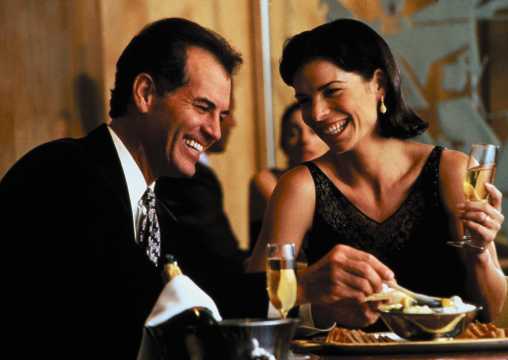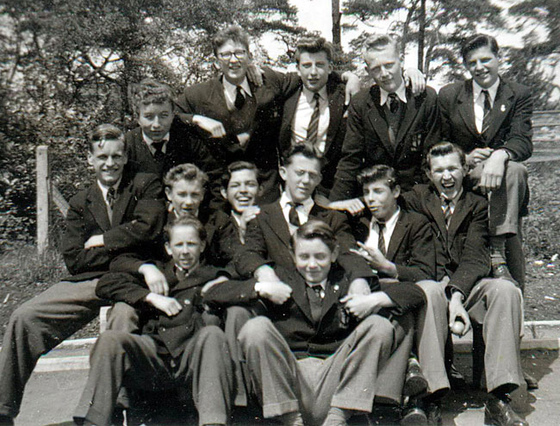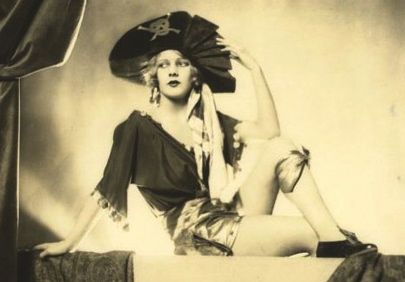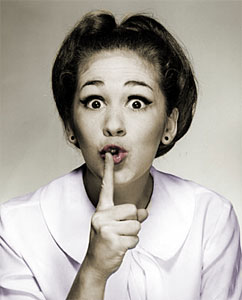This is the next entry in a series of conversations with my good friend Eric Benson at Inverted Garden. You can read my original post here and Eric’s response here. Prompted by Carl Wilson’s “A Journey to the End of Taste“, Eric and I are trying to untangle issues of taste, venue and class as they relate to classical and jazz music.
What drew me to classical music? It’s hard to say for sure. As a young child, I loved rock music, especially Elvis, The Beatles, and Nirvana. I spent many hours singing along with their songs, but I also played a stringed instrument (the viola) in school, and I started to develop a taste for, and an imagination about, the music we played in orchestra. My mother was an appreciator of classical music if not an avid listener, and with the tapes and records that she kept in our basement, I got into the habit of listening to classical music at home.
I was about 12 or 13 years old when I got hardcore into classical music. I learned later from my composition teacher in college, Easley Blackwood, that this was a very common age for such a pronounced taste to develop. He said that it was usually prompted by the performance of a Big Work – something like Beethoven’s 9th or Verdi’s Requiem. I can’t pinpoint my interest to any single event or piece, from that point on, classical music was an all-consuming passion for me.
In 7th and 8th grade, I felt a certain reluctance to divulge my taste in classical music to my peers. Though my taste seemed perfectly natural to me, I knew that it was not exactly normal and that it would cast me as a bit of an oddball (as if I needed any more help with that). I can even recall one of my friends telling me to keep it a secret, because classical music wasn’t cool. I guess that says something about classical music’s place in a society based entirely on social capital. Or maybe just something about a bunch of lame suburban middle-schoolers c. 1995. [Eric: Were you ever reticent as a boy to out yourself as a jazz aficionado? My guess would be not.]
Even in the world of average, ordinary adults, classical music doesn’t always hold a lot of social capital. In fact, it often doesn’t hold much social capital in the world of literate, sophisticated adults. These are the so-called “culturally aware non-attenders“: people who read contemporary literature, dine out, frequent museums and art house cinemas – but steer clear of the concert hall.

These are, ostensibly, the kinds of people that Greg Sandow has been talking a lot lately about in his posts on outreach in classical music. He notes that we tend to focus a lot of our efforts on underserved communities, mainly comprised of ethnic and cultural minorities. But, he asks, why not spend more of our time trying to recruit people “like us” who would be a more obvious target demographic?
Mr. Sandow’s goal may be to ensure the future of classical music, but I think there’s more behind this notion: namely, a desire to inflate the social capital of his own taste among his peers. I’m not saying there’s anything wrong with that – in fact, I’d say it’s as natural an inclination as you’ll find – but perhaps this says more about where classical music IS than where it’s headed.
Musical taste sits at this weird nexus of personal feeling, universal aura, and the social friction in between. On an individual level, we each enjoy “our” music viscerally, deeply, emotionally. Carl Wilson makes sure to point out in his book that musical enjoyment is a very real phenomenon.
Ironically, it’s because of this palpable, physical experience of enjoying music that we assume our music should – nay, must – be enjoyed the same way by other people. Music is one of those rare media that really can break the boundaries between peoples’ souls and shed light on the experience of what it actually feels like to be someone else. (David Foster Wallace always talked about this phenomenon with novels).
But this can create a frustrating dissonance when other people don’t share our passions and proclivities. I have seen people get their feelings sorely hurt when their friends mock their taste in music – or even hint that they might not share them. Musical taste seems to require social validation like few other brands of taste.
I think I got off topic there (or maybe on)… so, why do you like jazz? I’d say it’s just because you like it, because it makes you feel good.
But if I were to play Dime Store Psychiatrist (and isn’t that really the point of this entire series?) I might look at it this way: you grew up New York City, but you lived in a Manhattan apartment on the Upper West Side, and you attended an all boys private school. So despite the fact that you were in one of the world’s most cosmopolitan cities, your person experience of growing up in New York wasn’t all that much different than a boy growing up in, say Leonard Bernstein’s New York of the 1940’s.

In other words, by sheer coincidence of birth, you became part of the one demographic that still held onto the romanticized view of jazz clubs as louche dens of cool. Not to mention, the only demographic for whom such connotations even held any appeal. Where else were you going to get your kicks and establish your independence? Your taste in jazz is merely a manifestation of half a century’s worth of cultural boundary crossing.
A brief response to your claim about classical music institutions: It’s true, we classicists do have a leg up on you jazzers, in that our institutions have clobbered the public with the idea that classical music is somehow good for a person, and that classical concerts are somehow enriching. We even send our school kids on field trips to the concert hall.
It seems to me like a big problem with jazz is that it’s neither promoted as being “good for you” nor is it commonly viewed as being “bad for you”. Would you agree? I’d also like you to imagine an elementary school field trip to a jazz club matinee and what the educational benefit of that would be.





